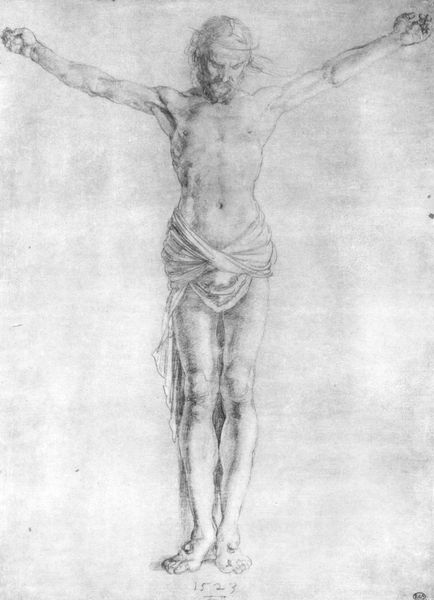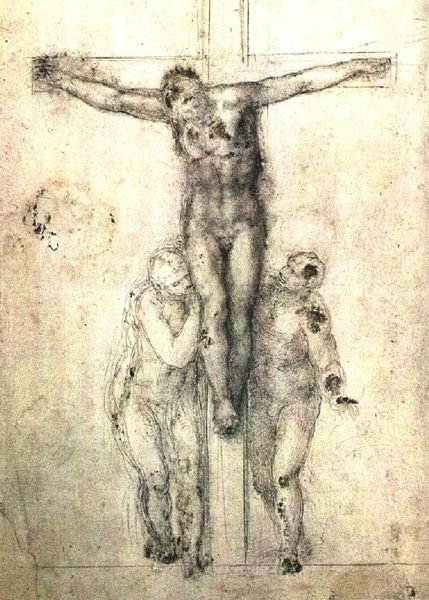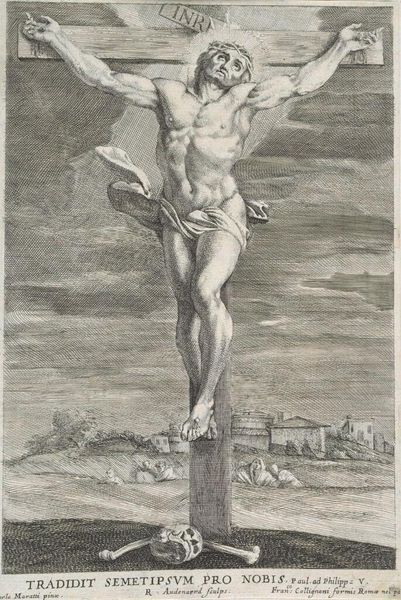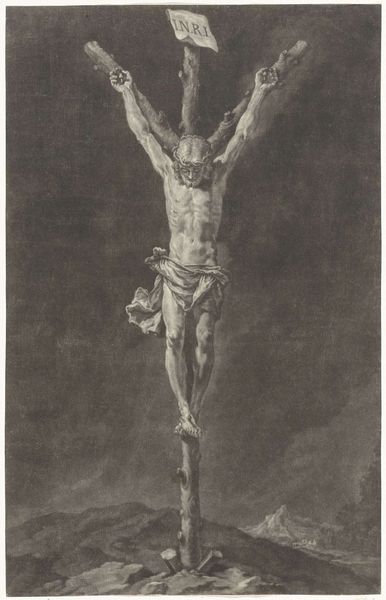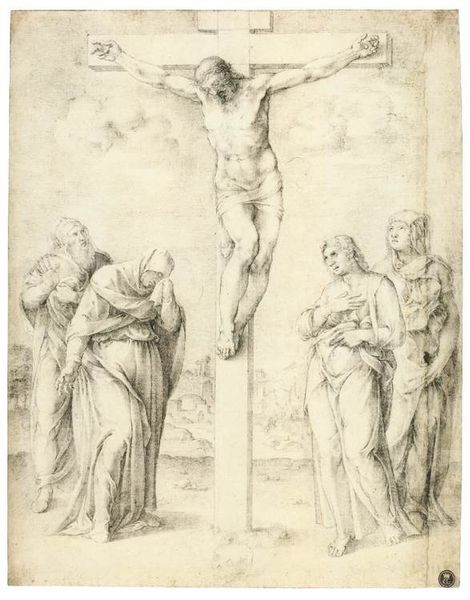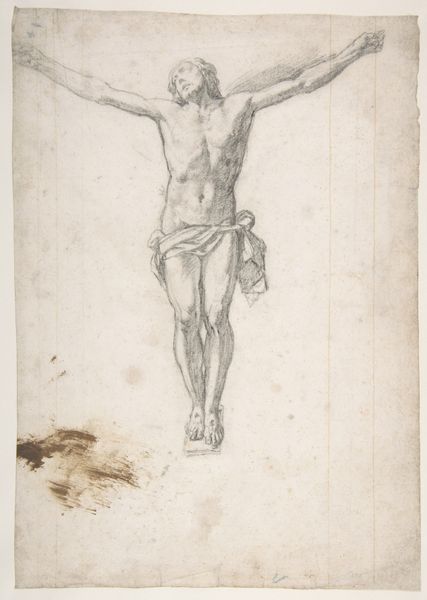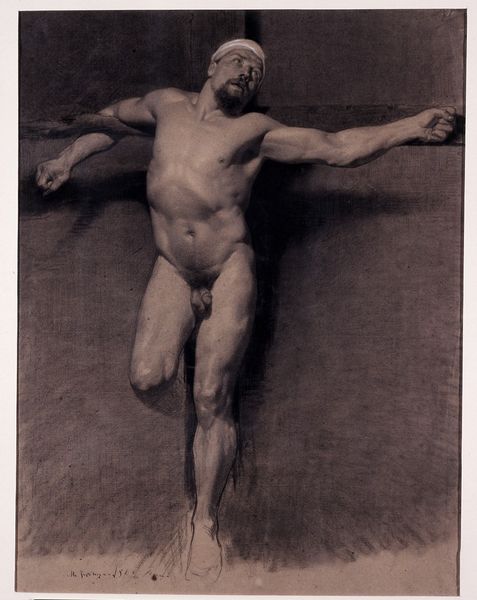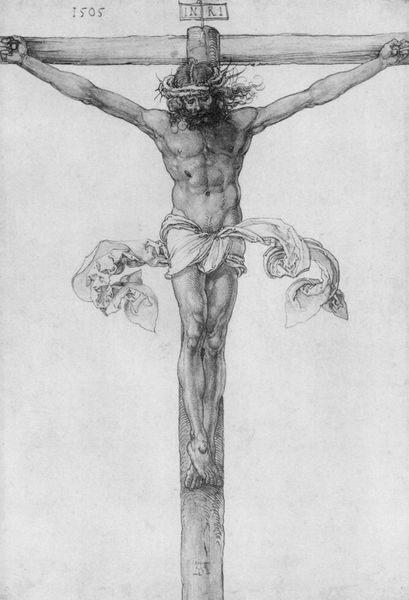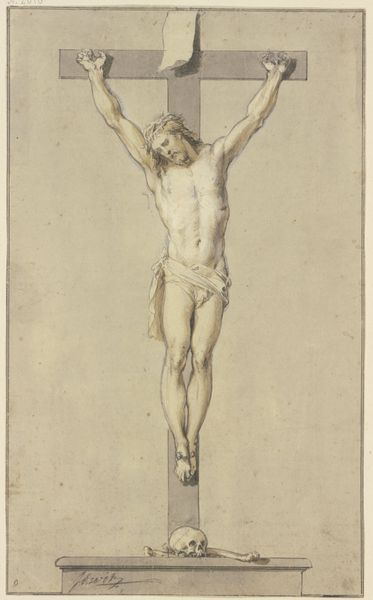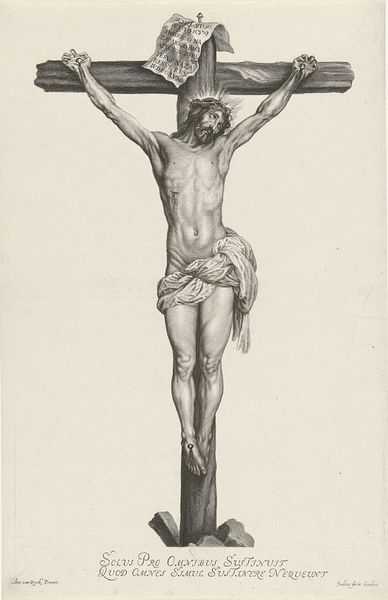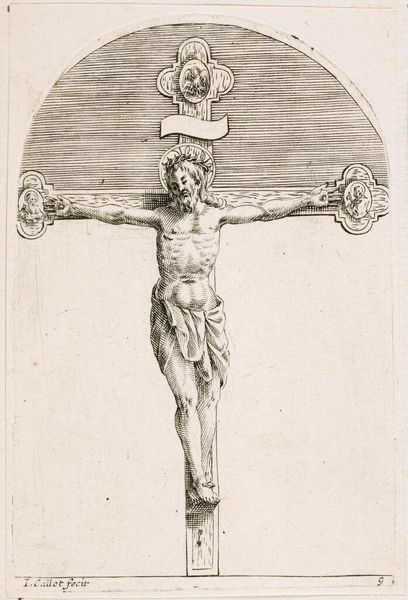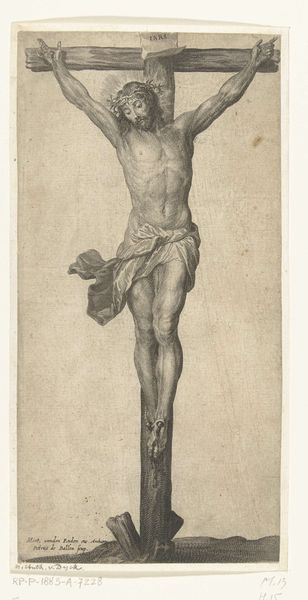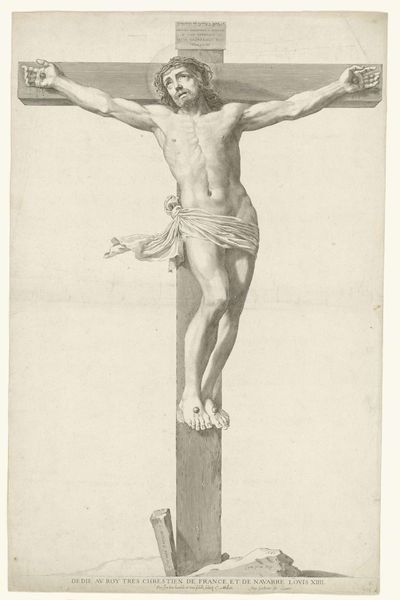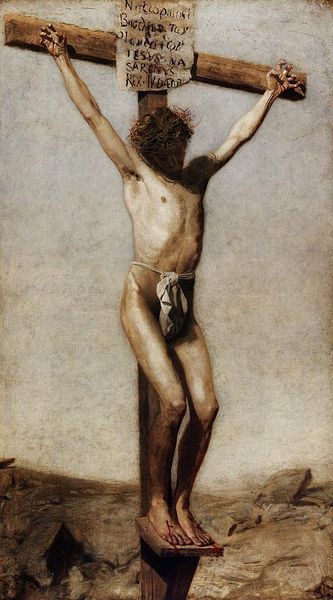
drawing, charcoal
#
drawing
#
sculpture
#
charcoal drawing
#
figuration
#
11_renaissance
#
charcoal art
#
oil painting
#
christianity
#
human
#
crucifixion
#
charcoal
#
history-painting
#
charcoal
#
italian-renaissance
#
nude
Dimensions: 37 x 27 cm
Copyright: Public domain
Michelangelo made this study for a crucifixion using pen and brown ink, likely sometime in the early 16th century. The crucifixion was a potent image in Renaissance Italy, laden with religious, political, and social meaning. But, rather than a straightforward depiction of religious iconography, this study showcases Michelangelo's interest in the human form. The body is muscular and weighty, bearing the marks of suffering. Italian Renaissance art was often commissioned by powerful institutions like the church, and artists like Michelangelo had to negotiate the expectations of their patrons with their own artistic vision. Michelangelo, however, constantly sought to challenge the artistic conventions of his time, infusing a humanist perspective in sacred subjects. His anatomical studies, for example, would have required the artist to defy the Church's prohibition on the dissection of corpses. To understand the significance of a work like this, we delve into the social and institutional context in which it was produced. Research into patronage, religious beliefs, and artistic practices can shed light on the complex dynamics that shaped Michelangelo's art.
Comments
No comments
Be the first to comment and join the conversation on the ultimate creative platform.
